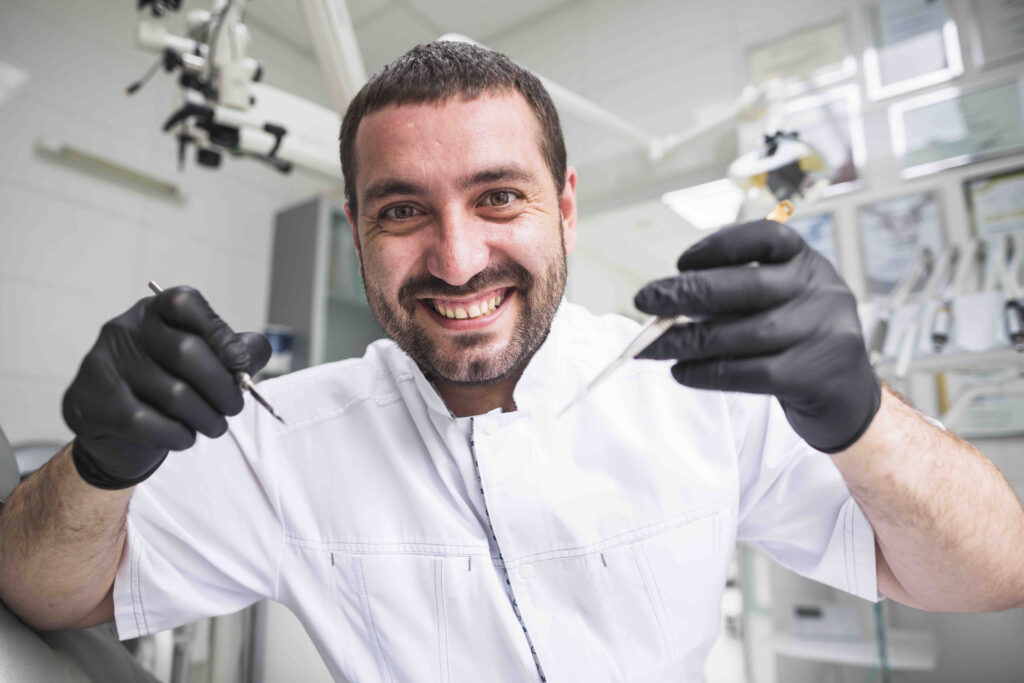Dentistry in Italy is a profession that combines art, science, and compassion to provide essential healthcare services to the population. Dentists, also known as “odontoiatri” in Italian, play a vital role in maintaining oral health and enhancing the smiles of their patients. In this comprehensive exploration, we delve into the world of dentistry in Italy, covering education, professional practice, challenges, and the unique aspects that make being a dentist in Italy a rewarding and impactful career.
Dental Education in Italy
Undergraduate Studies:
The path to becoming a dentist in Italy begins with a rigorous educational journey. Prospective dentists typically enroll in a five-year undergraduate program at an Italian university. This program covers a wide range of subjects, including:
- Anatomy
- Physiology
- Pharmacology
- Oral pathology
- Dental materials
- Clinical dentistry
- Radiology
- Periodontology
- Prosthodontics
- Orthodontics
- Oral surgery

Image by jannoon028 on Freepik
Internship and State Examination:
Upon completing the undergraduate program, aspiring dentists are required to complete a one-year internship at a public dental clinic or hospital. Following the internship, they must pass the state examination (Esame di Stato) to obtain their professional license.
Continuing Education:
“Odontoiatri” are encouraged to pursue continuing education to stay updated with the latest advancements in the field. This commitment to ongoing learning ensures that dental professionals provide the highest quality care to their patients.
The Dental Profession in Italy
Private Practice vs. Public Healthcare:
In Italy, dentists have the option to work in both private practice and public healthcare settings. Private dental clinics offer a wide range of services, from preventive care to complex restorative and cosmetic procedures. Public dental services are available through the SSN (Sistema Sanitario Nazionale) their national healthcare system, ensuring access to dental care for all citizens.
Dental Specializations:
Many dentists in Italy choose to specialize in specific areas of dentistry, such as:
- Orthodontics
- Oral surgery
- Periodontology
- Prosthodontics
- Pediatric dentistry
These specialists undergo additional training and certification in their chosen field and play a crucial role in addressing more complex dental issues.
Dentistry in the Italian Healthcare System

Italy has a well-established healthcare system that includes dental care. Dentists who provide services through the “SSN” receive reimbursement from the government for specific treatments. This system ensures that even individuals with limited financial means can access essential dental care.
Challenges and Rewards of Being a Dentist in Italy
Challenges:
- Regulatory Complexity: The practice of dentistry in Italy is subject to strict regulations and guidelines. Dentists must adhere to these regulations, which can sometimes be challenging to navigate.
- Patient Education: Promoting oral health and encouraging preventive measures among patients is an ongoing challenge. Many patients seek dental care primarily when they experience pain or discomfort.
- Economic Factors: Economic fluctuations and changes in healthcare policies can affect the financial stability of dental practices. Dentists must adapt to these changes while maintaining quality care.
Rewards:
- Positive Impact: “Odontoiatri” have the opportunity to make a significant positive impact on their patients’ lives by improving their oral health and enhancing their smiles.
- Professional Fulfillment: The field of dentistry offers a high level of professional fulfillment as dentists continuously learn, grow, and refine their skills throughout their careers.
- Diverse Patient Population: Dentists in Italy serve a diverse patient population, including people of different ages, backgrounds, and oral health needs, making every day unique and rewarding.
- Collaboration: Dentists often collaborate with other healthcare professionals, such as oral surgeons, orthodontists, and periodontists, which allows for interdisciplinary care and continuous learning.
- Career Stability: Dentistry is a stable and respected profession in Italy, offering job security and opportunities for growth and specialization.
Cultural and Ethical Aspects of Dentistry in Italy
“Odontoiatri”, like their counterparts around the world, are not just healthcare providers; they are also caregivers, educators, and advocates for the well-being of their patients. The cultural and ethical aspects of dentistry include:
- Patient Relationships: Building trust and rapport with patients is a fundamental aspect of dental practice. They take the time to understand their patients’ needs and concerns.
- Preventive Focus: Preventive dentistry is highly valued in Italy, with dentists emphasizing patient education and regular check-ups to maintain oral health.
- Artistry: Cosmetic dentistry, including restorative work, is considered an art form. Italian dentists take pride in creating beautiful, natural-looking smiles for their patients.
The Future of Dentistry in Italy
As in many countries, their field is continuously evolving. Emerging technologies, such as digital dentistry, teledentistry, and advanced imaging techniques, are shaping the future of dental practice. Additionally, a growing emphasis on holistic and patient-centered care is expected to influence the way dentistry is practiced in Italy.
Conclusion: The Smile Makers of Italy
Italian dentists are not just healthcare professionals; they are the smile makers who contribute to the oral health and well-being of their fellow citizens. Their dedication to education, patient care, and professional excellence ensures that people of all ages can enjoy healthy smiles that last a lifetime. Their journey is one of continuous learning, compassion, and a commitment to making a positive impact on the lives of their patients, one smile at a time.

